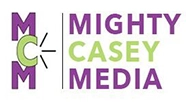It’s been a fun week here in Mighty Casey Media Land. We kicked off the week a little early (on Sunday) – the 411 on that is available here, and some of the social exhaust is available on Storify here and here. One member of the e-patient posse worried that the guy was gon’ have to enter witness protection, given the avalanche of opprobrium aimed his way from the expert-patient community. Thank god. I was worried this guy might need to go into the witness protection program. TY @MightyCasey – #FTW! https://t.co/xIayus5Gao — Hurt Blogger | Britt (@HurtBlogger) June 17, 2015 In an email thread among a group of expert patients working on aggregating and curating patient-useable outcomes reporting tools, Dr. Corrie Painter said she had called the Brookings Institution, the think tank where the author of the US News piece that set my hair on fire does his think-tank thing, and left a terse message on the Governance Studies main line about pontificating patriarchal putzes (technical term). Given my willingness to talk to anyone, any time, if it moves the needle on healthcare system transformation, I went one better and called the *other* number on the guy’s bio page. I expected to wind up leaving a voicemail, but … He. Answered. The. Phone. We talked for about 30 minutes, during which I assured him that I did *not* think that Yelp reviews were the ne plus ultra, or even a thing, when it came to outcome metrics on physicians and other clinical providers of medical services. But, as I pointed out in my “I’m channeling Lewis Black, with boobs, in healthcare here: righteous rage + cutting humor = driving that point home!” post, what real metrics are *available* to patients seeking intel on the expertise and outcomes of the doctors they go to for care? There are PQRS and Physician…
When you hear the word “monopoly,” does it fill you with a warm and fuzzy feeling? (Unless you’re Hasbro, you really should say no, unless you’re a cyborg.) Healthcare is a monopoly. We can’t DIY cancer treatment, or surgically repair a broken hip for ourselves, so we have to go to the medical-industrial complex to regain our health if we wander into the weeds, health-wise. We also have deep difficulty accessing pricing information. I’ve talked about that here over the last few years. Maybe not a monopoly in the financial-reg sense of the word, but it sure is mighty like a game of Monopoly. This “chaos behind a veil of secrecy” (all credit for that phrase belongs to healthcare economist Uwe Reinhart) has created the impression in healthcare customers that there’s no way to tell what something will cost before you buy it. You checks the box and takes yer chances. No Get Out of the Hospital Free cards. No pass-the-admissions-counter-collect-$200 option. That’s a rotten way to run a railroad (one of the original monopoly industries in US history), and an even worse way to run a hospital. Dan Munro wrote about this, and the star-chamber cabal that actually sets the prices in healthcare, the RUC, on Forbes.com yesterday. I’ve talked about the RUC myself. And the search for price transparency, which seemed such an outlier activity just a couple of years ago, is now popping up in the Well blog on the New York Times site, as well as on Reuters. The Reuters piece has the addition bonus of quotes from my buddy Jeanne Pinder, founder of ClearHealthCosts.com. (Yesterday was a big day in medical price transparency.) This is the central reason I registered the hashtag #howmuchisthat with Symplur, the healthcare hashtag registry. We all have to start demanding that prices be visible, and that the RUC stop cabal-ing…



